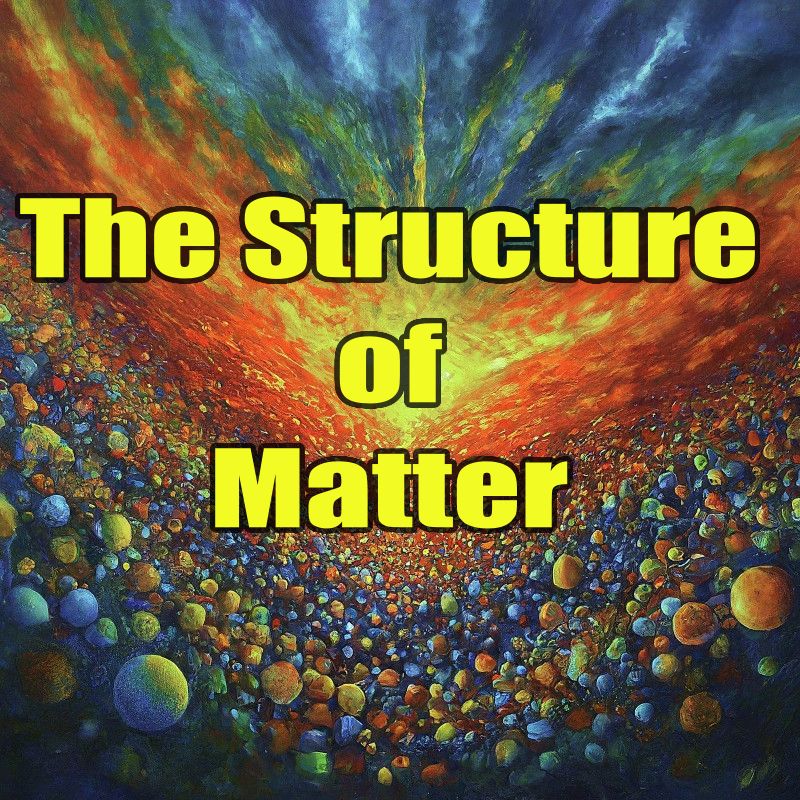In IB Physics First Assessment 2016, the structure of matter is a subtopic of Topic 7, atomic, nuclear, and particle physics. This subtopic has the following understandings associated with it.
- Quarks, leptons and their antiparticles
- Hadrons, baryons and mesons
- The conservation laws of charge, baryon number, lepton number, and strangeness
- The nature and range of the strong nuclear force, weak nuclear force, and electromagnetic force
- Exchange particles
- Feynman diagrams
- Confinement
- The Higgs boson
In this part of the analysis, I am particularly interested in “What is the frequency distribution of the questions concerning the structure of matter understandings?”
Frequency distribution of questions by the structure of matter understandings for HL
Between 1999-2023
For the entire dataset for HL, almost half of the questions came from the conservation laws and Hadrons, baryons, and mesons. Quarks, leptons and their antiparticles and Feynman diagrams accounted for about one-third of the questions.
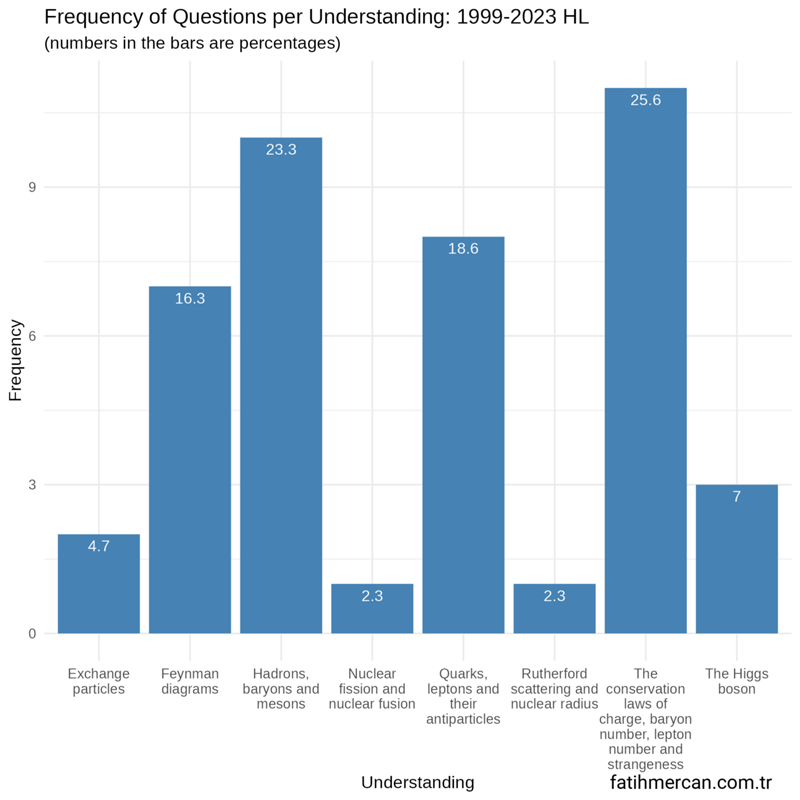
Figure 1
Between 2016-2023
Between these years, Feynman diagrams and the conservation laws were emphasized; accounting for about two-thirds of the questions.
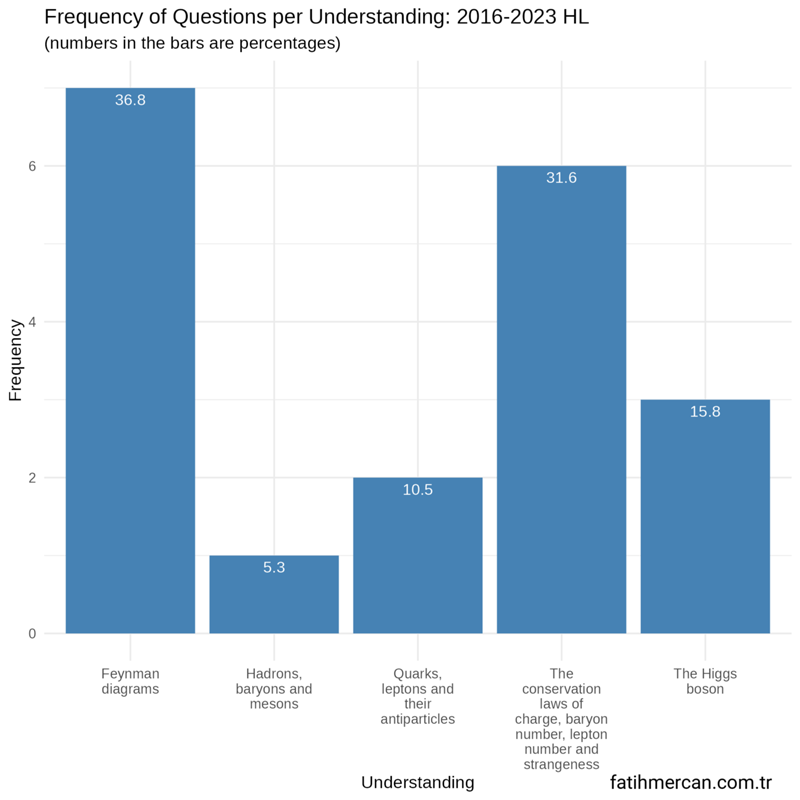
Figure 2
Frequency distribution of questions by the structure of matter understandings for SL
Between 1999-2023
For the entire dataset for SL, hadrons, baryons, and mesons accounted for about two-fifths of the questions. The conservation laws and Feynman diagrams were also emphasized.
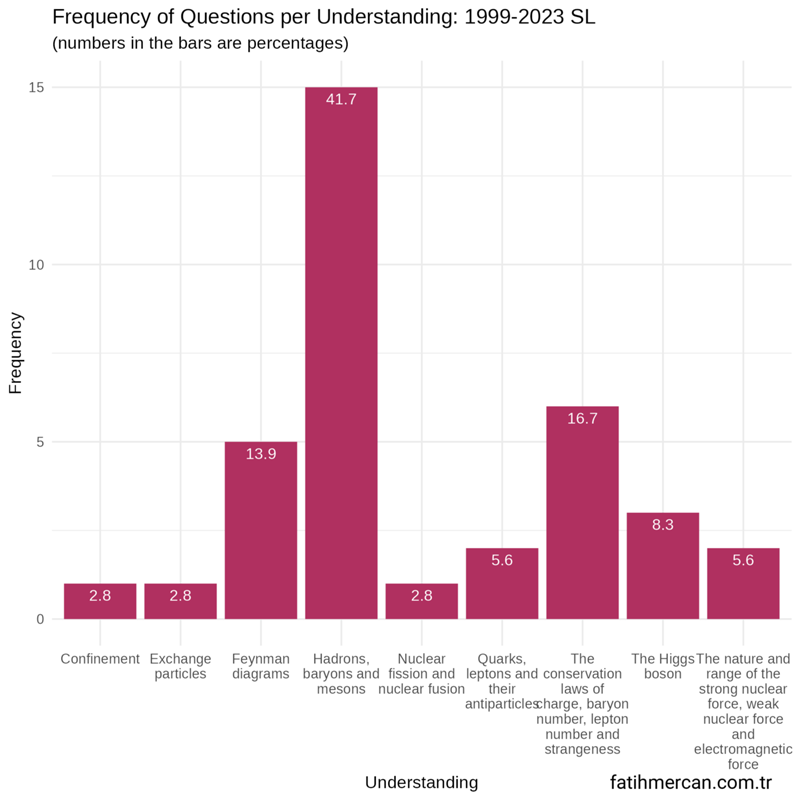
Figure 3
Between 2016-2023
Between these years, the conservation laws and Feynman diagrams accounted for more than half of the questions.
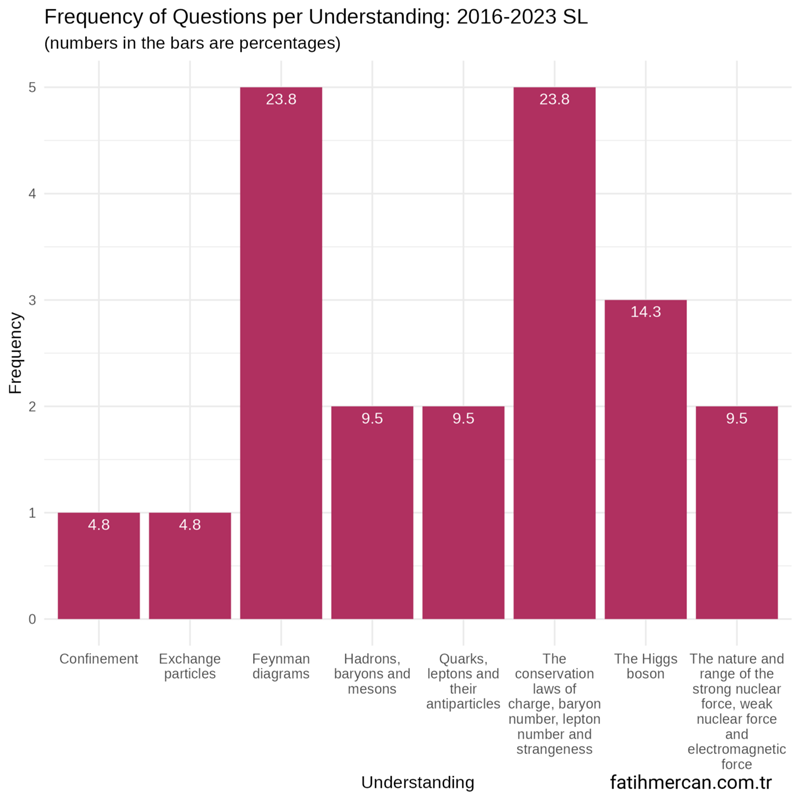
Figure 4
Where to go from here?
You may want to check out the other related subtopics:
If you are interested in more detailed analyses of the topics:
- Measurement and uncertainties
- Mechanics
- Thermal physics
- Waves
- Electricity and magnetism
- Circular motion and gravitation
- Atomic, nuclear and particle physics
- Energy production
- Wave phenomena
- Fields
- Electromagnetic induction
- Quantum and nuclear physics
This work/product/service has been developed independently from and is not endorsed by the International Baccalaureate Organization. International Baccalaureate, Baccalauréat International, Bachillerato Internacional and IB are registered trademarks owned by the International Baccalaureate Organization.
